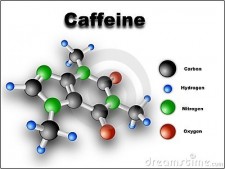 Caffeine, a naturally occurring ingredient found in coffee and tea, has also been added of late to everything from energy drinks to candy. Now, it is even being sold as pure caffeine in powder form, a teaspoon of which is equivalent to 25 cups of coffee. This powder can be purchased online or in stores that sell supplements and may be marketed as an athletic performance enhancer or a weight-loss aid.
Caffeine, a naturally occurring ingredient found in coffee and tea, has also been added of late to everything from energy drinks to candy. Now, it is even being sold as pure caffeine in powder form, a teaspoon of which is equivalent to 25 cups of coffee. This powder can be purchased online or in stores that sell supplements and may be marketed as an athletic performance enhancer or a weight-loss aid.
Following the deaths of two young men one 18, the other 24 due to the use of pure caffeine powder, the FDA is not only urging consumers to avoid using this product, warning that even small amounts can lead to complications such as rapid heartbeat, seizures and death, but is also considering regulatory action to address concerns. This is according to a statement they made this week.
The only instance in which the FDA approved the addition of caffeine to a product was in the case of carbonated sodas in the 1950s. However, because it is now being used widely in a variety of products, Jim White, a registered dietician and spokesman for the Academy of Nutrition and Dietetics cautions that people may not even know how much caffeine they are actually consuming each day. According to the FDA, it is safe to consume about 400 milligrams of caffeine a day, the amount found in four to five cups of coffee.
As we've said before when discussing caffeine powder, this is a case in which consumers especially teens are not aware of the fact that the dose makes the poison when it comes to drugs, supplements, chemicals etc. However, in many cases, an individual may not even be aware of the amount of caffeine in products because labels are not required to carry this information.
ACSH s Dr. Ruth Kava adds, If purveyors of caffeine do not disclose the amount of caffeine in their products, they should at least be required to post a warning on the label acknowledging that overdoses can be deadly and advising about safe levels of consumption.


